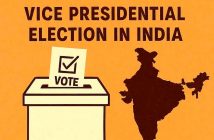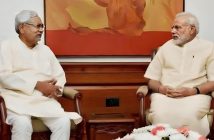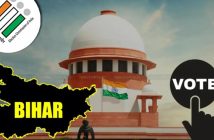Will Tejashwi Yadav’s call for reservation reform transform Bihar, or will it just sway voters? As the 2025 elections near, the RJD leader pushes for an 85% quota, stirring hope and scepticism. Supporters hail it as justice for marginalized groups; critics view it as vote-bank tactics. With Nitish Kumar silent and the BJP slamming the move, tensions rise. Can Tejashwi Yadav’s reservation reform in 2025 deliver real change, or is it merely electoral posturing? Examine the motivations, reactions, and implications behind this ambitious proposal that could transform Bihar’s political landscape and shape crucial alliances.
Key Details
- Tejashwi Yadav, RJD leader and Leader of Opposition in Bihar.
- Demands the enactment of new laws to increase reservation to 85% for OBCs, EBCs, Dalits, and Adivasis.
- June 5, 2025, via a letter to CM Nitish Kumar.
- Bihar, ahead of the 2025 Assembly elections.
- To address social inequalities and protect quotas legally amid electoral strategy debates.
Tejashwi Yadav’s reservation reform 2025 has ignited Bihar’s political landscape ahead of the 2025 Assembly elections. On June 5, 2025, the RJD leader wrote to Chief Minister Nitish Kumar, requesting a special assembly session to enact laws that would raise reservation quotas to 85% for marginalized communities. This bold move, citing Tamil Nadu’s 69% quota, aims to protect Bihar’s weaker sections. With elections nearing, is this a genuine push for social justice or a calculated play to rally OBC and youth voters? Critics, including the BJP, label it electoral posturing, while supporters see it as uplifting the backward classes. As tensions rise, Tejashwi Yadav’s reservation reform 2025 could reshape alliances and voter sentiment, redefining Bihar’s political future.
Background: Reservation Politics in Bihar
Bihar’s reservation history is rooted in social justice movements. The Mandal Commission (1980) recommended 27% OBC reservation, sparking a nationwide debate. Bihar, under Lalu Prasad Yadav’s RJD, embraced quotas to empower backward classes, shaping its political identity “‘Bihar is being shamed’: RJD on Nitish Kumar’s ‘objectionable’ action with woman on stage”. In 2023, the RJD-led Mahagathbandhan introduced laws for 75% reservation, which were later struck down by the Patna High Court in 2024. Tejashwi’s current push for 85% quotas, inspired by Tamil Nadu’s model, aims to include it in the Constitution’s Ninth Schedule to shield it from judicial review. This aligns with RJD’s long-standing appeal to OBCs and Dalits, a core voter base.
Key Events: Tejaswi’s Proposal and Timing
On June 5, 2025, Tejashwi Yadav penned a letter to Nitish Kumar, urging a special session to draft new quota laws. He proposed an all-party committee to ensure consensus. The timing, months before the Bihar Assembly elections, raises questions about intent. Tejashwi accuses the NDA of stalling the implementation of the 65% quota, resulting in a 16% loss of reservation. His call for 85% quotas, including private sector reservations, aims to galvanize young people and marginalized voters. The RJD’s aggressive campaign, including Tejashwi’s yantras, amplifies this narrative.
Stakeholder Perspectives
RJD and Supporters: Tejashwi positions himself as a champion of social justice. “We’ll ensure jobs for OBCs, Dalits, and Adivasis,” he declared on X. Supporters argue the reform addresses systemic inequalities, citing Bihar’s caste survey showing 63% of the OBC/EBC population.
BJP: The BJP dismisses Tejashwi Yadav’s reservation reform 2025 as “vote-bank politics.” Spokesperson Prabhakar Mishra accused RJD of hypocrisy, pointing to its governance failures. JD(U): Nitish Kumar’s silence frustrates RJD. JD(U)’s Neeraj Kumar countered, recalling RJD’s alleged criminal past during its 1990-2005 rule. Other parties, such as regional players like Chirag Paswan’s LJP, remain cautious, focusing on personal political decisions over quota debates.
Public Reaction
Public sentiment is divided. OBC and Dalit communities rally behind Tejashwi, seeing hope in expanded quotas. “This could change lives,” said Rajesh Paswan, a Patna student. Urban voters and upper castes, however, view it as divisive. Social media reflects this split, with #TejashwiYadav trending alongside criticism of “reservation politics”. A C-Voter survey shows Tejashwi’s popularity at 35.5%, down from 40.6% in February 2025, hinting at voter fatigue.
Legal and Policy Backing
Tejashwi’s proposal lacks immediate legal clarity. Placing quotas in the Ninth Schedule requires parliamentary approval, a challenge given the BJP’s central dominance. Experts, such as constitutional lawyer Anil Kumar, argue, “It’s legally complex but feasible if bipartisan.” Tamil Nadu’s 69% quota, protected since 1994, sets a precedent. However, the Supreme Court’s 50% cap on reservations poses hurdles. Policy-wise, increased quotas could boost education and job access, but they could also strain public resources, warns economist Rakesh Sinha.
Socio-Economic Impact
Expanded quotas could uplift Bihar’s marginalized, with 63% OBC/EBC and 20% SC/ST populations per the 2023 caste survey. Jobs and access to education might increase, reducing poverty. However, critics warn of implementation costs and potential reverse discrimination. “Quotas alone won’t solve unemployment,” Sinha notes. Data from Bihar’s Economic Survey 2024 shows 23% youth unemployment, underscoring the need for broader reforms.
Electoral Implications
Tejashwi Yadav’s reservation reform in 2025 aims to consolidate the RJD’s OBC and youth base, crucial for the 243-seat Assembly elections. The RJD’s 80 seats in 2015 and 75 in 2020 show its strength. This move puts pressure on Nitish Kumar’s JD(U), already weakened by internal dissent over the Waqf Bill. Alliances may shift, with RJD eyeing Congress support but ruling out Nitish’s return. A united INDIA bloc could challenge the NDA’s 127 seats from 2020.
Conclusion
Tejashwi Yadav’s reservation reform 2025 is a high-stakes gamble. It promises social justice but risks being seen as electoral bait. With Bihar’s voters polarized and alliances fluid, the proposal could redefine the 2025 elections. Whether it delivers real change or fades as rhetoric depends on legal backing and political will, as Bihar awaits Nitish’s response, Tejashwi’s bold move keeps him in the spotlight, for better or worse.




